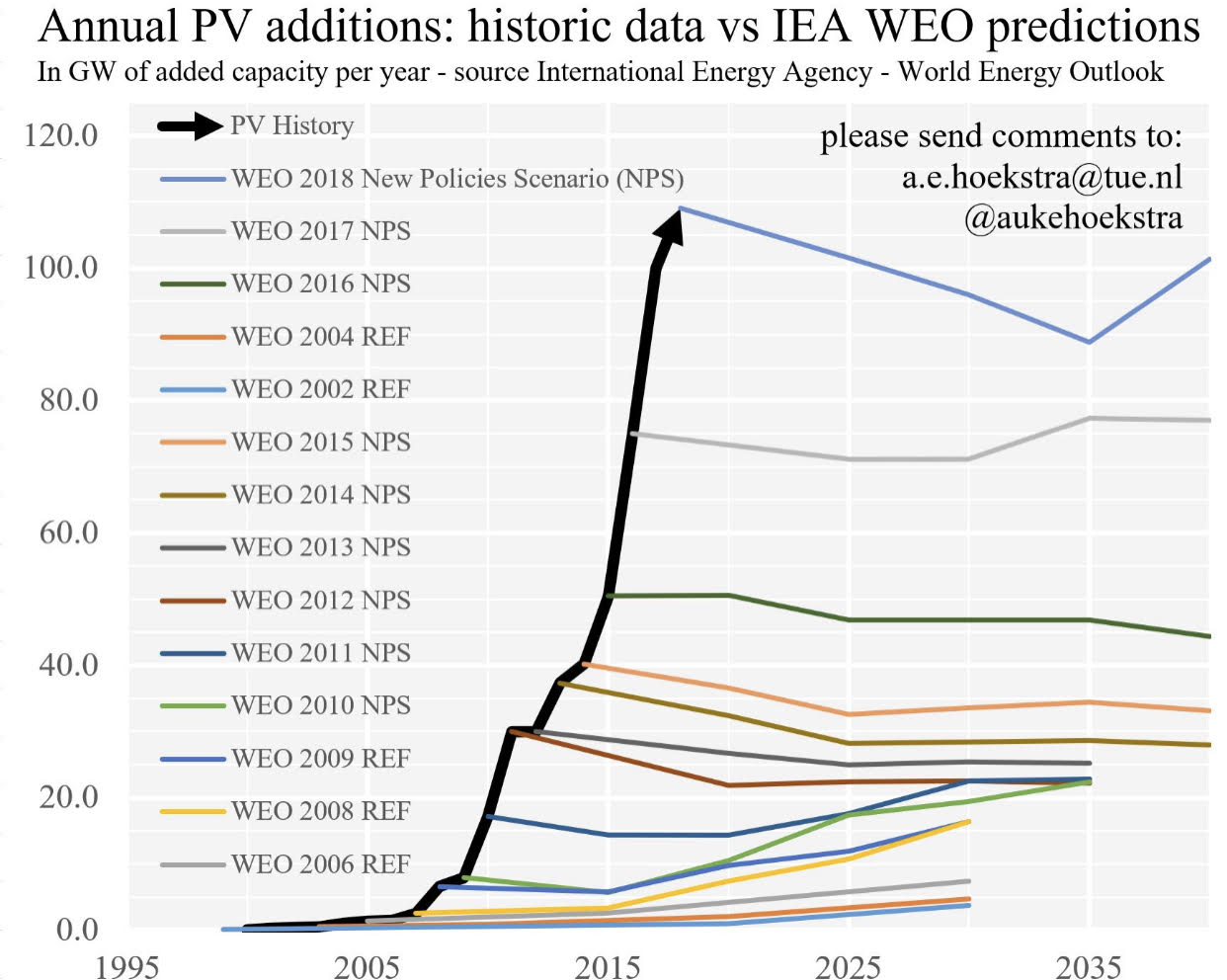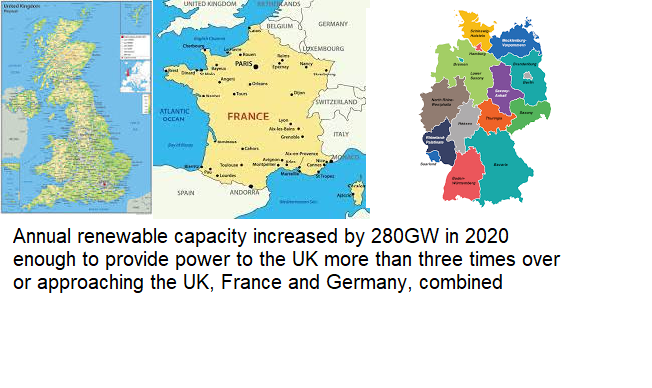Sir Ian Wood, an oil industry veteran, has described plans to stop drilling for oil in the North Sea as crazy — is this another example of linear thinking?
Renewable energy expert Auke Hoekstra famously showed how the International Energy Agency has continuously failed to anticipate the rise of renewables.

Maybe the problem here is Amara's Law — we overestimate change in the short term but underestimate it in the long term.
Amara's law explains why we (I mean everyone) were so slow to grasp the seriousness of Covid early in 2020. It also explains technology cynicism. It is human nature to focus on the short term track record, whilst exponential means slow change at first, but rapid change in the future — that's a simplification, of course.
But then the IEA didn't just get it wrong in the long term; its projections for short-term changes were out too.
If we lived in a world where all technology changed at a linear pace, if the market share of renewables was likely to increase at an even pace every year, then Sir Ian Wood will have made a pertinent point. (Or, Sir Wood would have made a good point, but oil industry veterans who can't be good might just as well be made of wood.)
In an interview with the BBC, the former boss of Wood Group, Sir Ian, warned against ending the drilling for oil and gas off the UK.
His argument is a subtle one; he suggests that we will need oil and gas for a good many years, so if we cease searching for, and then drilling in, new fields, the UK will have to import oil from countries that may not apply the same standards in minimising carbon emissions as the UK.
He said: "If we don't have our own oil and gas, we'll have to import it because we just don't have any other resources.
"And if we import it, we'll have more potent gas, and we'll do more damage to the environment - it would be, frankly, absolutely crazy. It would be detrimental, environmentally."
There are two problems with this, but they have the same explanation: the explanation is exponential.
For one thing, the renewable revolution in the UK means that the UK's reliance on oil and gas will reduce rapidly — it won't reduce at the pace the IEA predicts, it will reduce at a rate commensurate with the pace that the IEA has failed to predict.

For a second thing, from the point of view of the oil industry selling oil into the UK, searching for new sites and drilling for oil in new fields would be a disastrous move — it has the creation of stranded assets written all over it. So from the oil industry's point of view, the only possible justification for such a move would be to export the oil. But since Sir Ian says we need the oil to reduce reliance on imports, that can't possibly be the correct explanation.
On the other hand, from a climate change perspective, the real problem with fossil fuels is not the carbon footprint from extracting them; it is the carbon footprint from burning them.
Given the pace with which the cost of energy generated by fossil fuels is falling, it seems unlikely much of the new oil Sir Ian wants to extract will ever be burned anyway.
Revolutions are not gradual things — they wouldn't be revolutions if they were. The causes of the French Revolution might have been long in the making, but the French didn't storm the Bastille gradually. On the 13th July 1789, they didn't say "we will have 100 per cent net stormed the Bastille by 1820."
The industrial revolution of the 18th century might have lasted several decades, but it was a blink of an eye in historical terms.
But in the digital era, eyes blink more rapidly, industrial revolutions take place over a much shorter time frame, and in any case, climate change isn't waiting for us to get ready. It doesn't say: "Look, humanity, I know this is terribly inconvenient; therefore, I am going to give you more time to prepare."
We can say, 'let us eat cake today and joyfully burn oil like we were aristocratic revelers at the Palace of Versailles, but then we won't have any cake at all in a decade or two from now.







Related News
The AI revolution is here
Jan 25, 2023
The impossible conclusion about technology becoming less disruptive and why it is so dangerous
Jan 20, 2023
Tech bubble! Are you kidding?
Jan 06, 2023